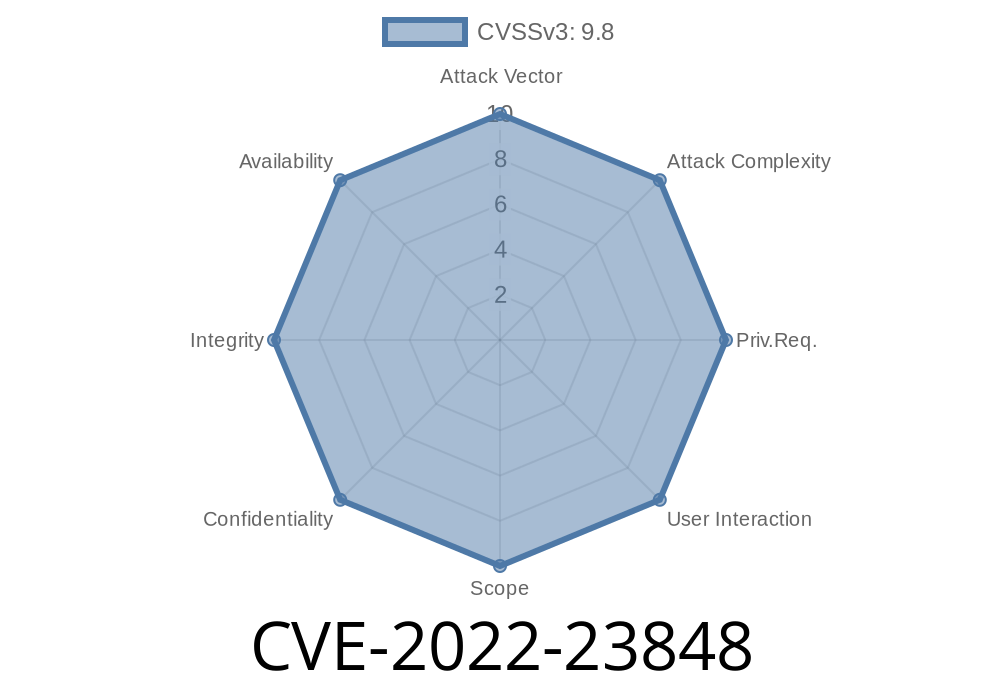Alluxio is a widely-used open source data platform, heavily relied upon to handle massive scale workloads across industries. However, a discovered vulnerability (CVE-2022-23848) exposed users who ran versions prior to 2.7.3, through a critical issue in the log server — which, if exploited, could put sensitive infrastructure at risk.
In this post, we’ll break down what the bug was, show you a simplified code snippet explaining the problem, talk about possible exploit scenarios, and give you direct links for more research. We’ll also make clear how this issue is different from the notorious Log4j (Log4Shell) bug.
The Vulnerability: Broken Input Validation
Alluxio’s log server is designed to receive log messages from client applications. It listens for log data over a network socket and processes those logs for storage or monitoring purposes.
Bug summary
> _The log server in Alluxio (before v2.7.3) does not properly validate or sanitize the input stream. If an attacker sent unexpected or malicious data to the log server, it could cause unexpected behavior or even allow remote attacks depending on deployment._ (Reference: CVE-2022-23848 at NVD)
Breaking Down the Problem: The Code
Let’s show a simplified Java pseudocode to illustrate the vulnerable pattern (not the real source, but close enough for learning):
// Vulnerable: Does NOT validate input!
ServerSocket serverSocket = new ServerSocket(500);
while (true) {
Socket client = serverSocket.accept();
InputStream in = client.getInputStream();
// Directly deserializing whatever client sends
ObjectInputStream ois = new ObjectInputStream(in);
LogMessage msg = (LogMessage) ois.readObject(); // DANGEROUS (if input is untrusted)
processLog(msg);
}
Here, ObjectInputStream.readObject() will deserialize whatever is sent by the remote client. If a malicious user connects and sends specially crafted input, several things could go wrong:
The application could crash (Denial of Service)
- If libraries with known deserialization gadgets are present, this could become Remote Code Execution in worst-case scenarios.
> Note: With proper input validation (checking the data, using whitelists, or not using Java serialization at all), this wouldn’t be an issue.
Example “Exploit” Scenario
This is NOT weaponized code—just a sketch for your understanding.
A malicious actor could do something like
# Python example: Send junk data to the logserver socket
import socket
s = socket.socket()
s.connect(('alluxio-logserver-ip', 500))
s.sendall(b"not-a-legit-log-message")
s.close()
If the server expects a valid serialized Java LogMessage object but gets garbage, it could throw exceptions, filling logs with errors or causing a crash loop. More dangerously, with known deserialization chains, an attacker could try to trigger arbitrary code _if_ the server has insecure libraries in classpath.
Difference with Log4j (CVE-2021-44228)
This is NOT Log4Shell.
That bug was about log message parsing allowing JNDI lookups and code execution.
- This Alluxio bug is about the *server log receiver* blindly trusting all input fed over its socket, regardless of source or content.
More robust error handling and less trust in external data.
Upgrade is the best fix. Don’t expose your log servers to untrusted networks, and avoid direct Java serialization/deserialization.
References
- CVE-2022-23848 at NVD
- Alluxio 2.7.3 Release Notes
- Alluxio GitHub Issue
- Deserialization Security Best Practices
Patch now: Upgrade Alluxio to 2.7.3, or newer.
- Restrict network access: Never expose logserver ports to public/untrusted networks.
Conclusion
CVE-2022-23848 shows that even trusted components like log servers can become security hazards if input is not validated. While not as severe or famous as Log4j’s Log4Shell, it’s a good lesson: “Trust nothing—always validate input!”
If you’re using Alluxio before 2.7.3, update now and audit your other log ingestion points—not all vulnerabilities become headlines, but all can be dangerous.
Timeline
Published on: 02/20/2022 19:15:00 UTC
Last modified on: 02/28/2022 18:19:00 UTC
